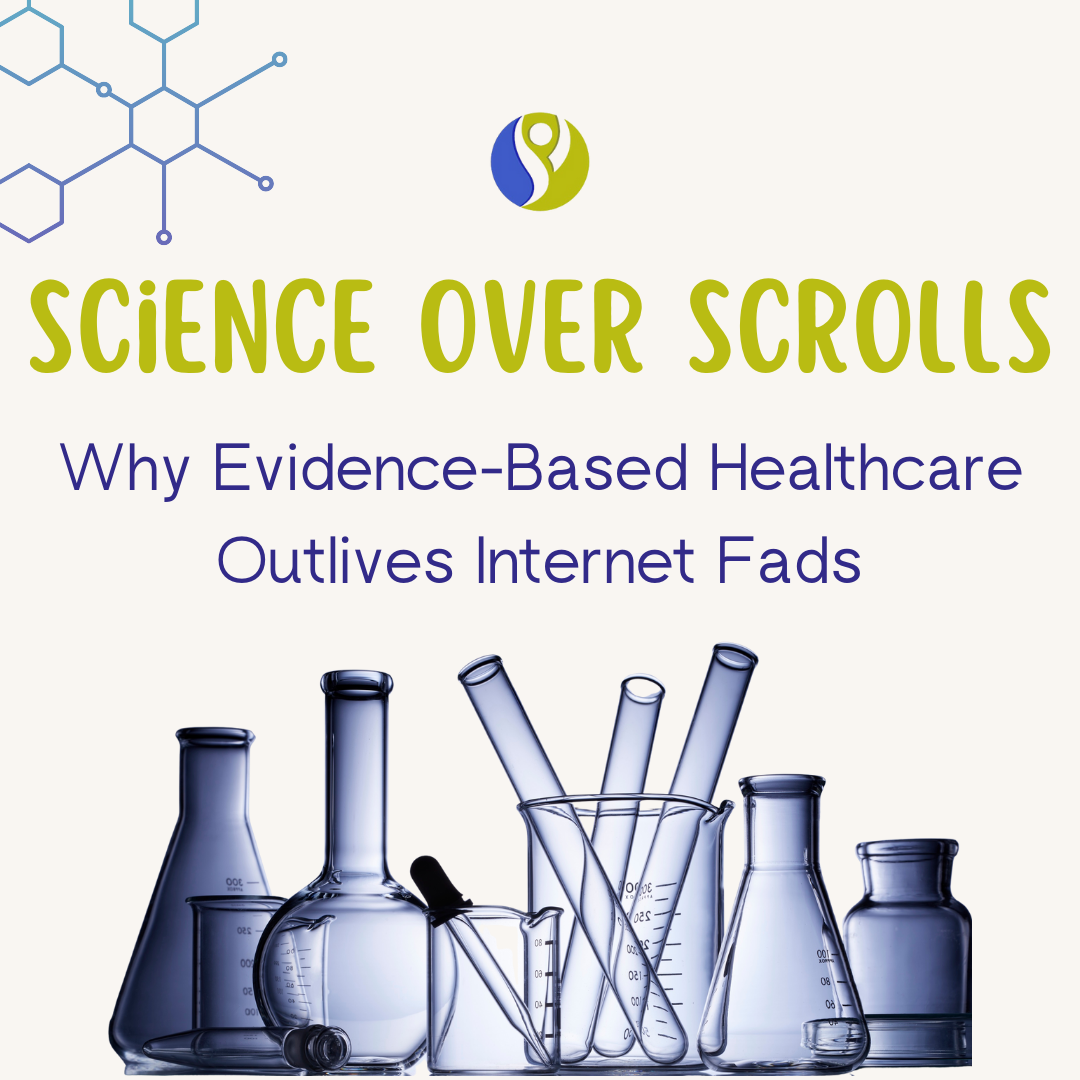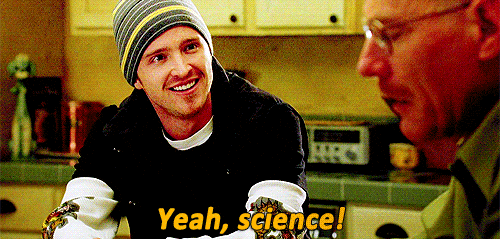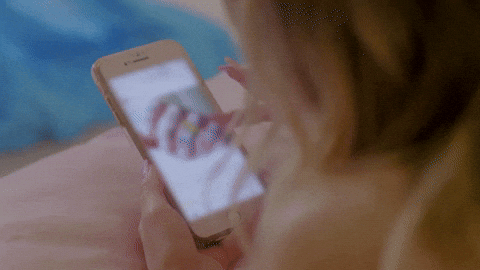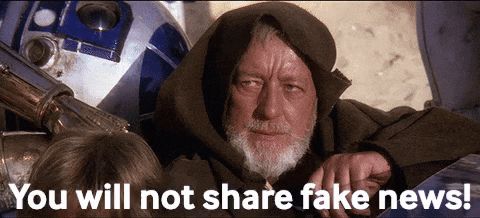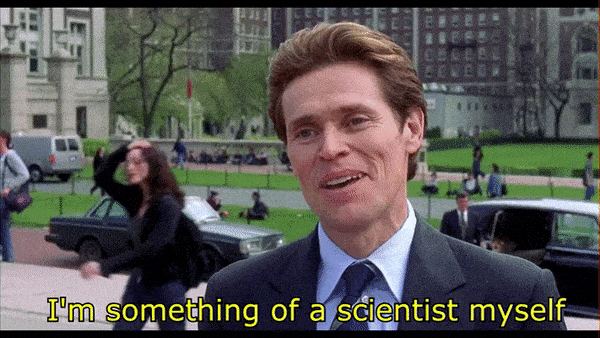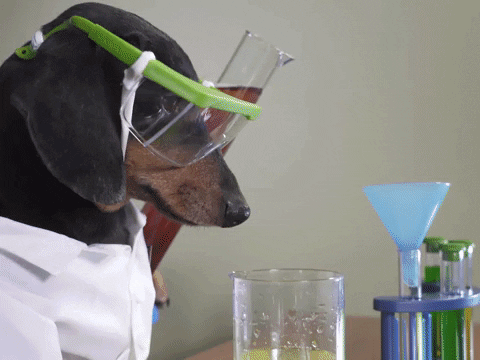Science Over Scrolls: Why Evidence-Based Healthcare Outlives Internet Fads
The Scientific Process: Not Magic, But Better Than Guesswork
Imagine trying to navigate a maze blindfolded, using only gut feeling and rumors from passersby. That’s roughly what it’s like to be a healthcare provider without a scientific process. The scientific method is our headlamp in that maze: a structured, critical, iterative approach that helps us discern what works, what doesn’t, and how confident we should be.
Here’s a sketch of the scientific process:
Observation / Question
The research topic. Something weird or interesting pops up, for example: “Why do some patients recover faster from sepsis?” or “Does supplement X really lower risk of disease Y?”Background Research / Literature Review
You investigate what’s already known, which prior studies exist, how good those studies are, how replicable those studies are, and where the gaps lie. This prevents “reinventing the wheel” or jumping to conclusions you shouldn’t jump to without the right evidence and research.Hypothesis Formulation
You propose a tentative explanation. Such as: “I hypothesize that supplement X improves outcomes by modulating the immune response”.Experimental / Study Design
You design an experiment or clinical study to test that hypothesis under controlled (or as controlled as possible) conditions. In medicine, that often means randomized controlled trials (RCTs), cohort studies, case-control studies, etc.Data Collection & Measurement
You collect data, measure outcomes, monitor side effects, ensure protocols are followed, blind participants when feasible, etc.Analysis & Interpretation
You analyze statistical significance, effect sizes, confidence intervals, subgroups, potential biases, confounders, etc.Peer Review & Publication
Other experts vet your work — check methods, request clarifications, perhaps demand additional analyses. You revise, and then publish.Replication & Verification
Other independent researchers try to replicate your findings (or refute them). Science self-corrects this way.Guideline Development & Clinical Application
When multiple good studies converge, professional societies or public health bodies may produce recommendations or guidelines that inform practitioner behavior.Continuous Reassessment
Even “accepted treatments” may be revisited. New studies, new technologies, even new understandings of physiology can force updates.
This is not a rigid “one-size-fits-all” flowchart: real science is messy. The principles of controls, transparency, reproducibility, skepticism, peer review, etc give us guardrails to minimize error, bias, and harm.
Evidence-Based Healthcare: The Good, the Nuanced, and the Realistic
In the context of medicine, “evidence-based” means combining best available external evidence, clinical expertise, and patient values and preferences. NCBI+3Lippincott Journals+3PMC+3
Why this triad? Because:
Raw evidence (e.g. an RCT) doesn’t automatically resolve the decision for your patient.
Clinical context, comorbidities, resource constraints, and patient values shape how you apply evidence.
The strongest evidence still has limitations such as bias, applicability, statistical uncertainty.
When done well, evidence-based practice is strongly correlated with better patient outcomes, safety, and care quality. Sigma Journals+1
But (because there’s always a “but”), evidence-based healthcare faces challenges:
Quality and availability of evidence
Not every clinical question has a high-quality RCT or systematic review behind it. For rare diseases or emergent problems, evidence may be sparse or evolving. NCBI+2MDPI+2Publication bias & conflict of interest
Studies with “positive results” are more likely to be published; industry-funded trials may selectively report favorable outcomes. NCBI+2PMC+2Time lag
It takes years to complete large trials, analyze them, publish, and integrate them into guidelines. By then, clinical practice or disease patterns may have shifted. NCBI+1Heterogeneity & external validity
A “significant result” in a trial population may not generalize to someone with multiple comorbidities, different demographics, or resource constraints. MDPI+1Overreliance on numbers, underappreciation of patient values
Some practitioners fall into “cookbook medicine,” ignoring patient preferences or local context, thinking guidelines are rigid mandates. NCBI+2MDPI+2Complexity & cognitive burden
Keeping up with vast, rapidly evolving medical literature is overwhelming. Clinicians can’t read every new trial daily; that’s why synthesis (systematic reviews, guidelines) is essential. japsonline.com+1
Thus, the goal is not blind worship of “evidence,” but a critical, balanced, patient-centered use of evidence, combined with ongoing judgment and reevaluation. It’s okay to think for oneself and question everything!
The Dark Side of Social Media Trends, Non–Evidence-Based, Biased Health Advice
When you stray from evidence and instead lean on biased, anecdotal, or ideological claims, things can go badly — sometimes catastrophically. Below are some of the risks.
Delaying or Forgoing Effective Treatment
If you trust a flashy “natural remedy” or influencer claim over therapies backed by evidence, you may delay an effective intervention (e.g. a proven drug or surgery). That delay can worsen disease, reduce chances of recovery, or increase the risk of irreversible damage.
Harm from Untested or Unsafe Interventions
Let’s be honest, I wouldn’t trust the person who recommended drinking bleach for treating COVID-19. I also wouldn’t believe the information in one debunked article stating vaccines cause autism. Many “alternative” therapies or trending remedies on social media are not benign. Some have serious side effects, interact dangerously with conventional drugs, or carry toxic adulterants. Without rigorous testing, you cannot reliably quantify risk vs benefit.
Resource Waste & Opportunity Cost
Money, time, and energy spent on ineffective interventions are resources lost. They could have been invested in effective therapies, supportive care, or preventive measures.
Undermining Trust in Good Medicine/Healthcare
When non–evidence-based claims are later debunked, public trust in healthcare institutions may erode. This “backfire effect” can make people skeptical even of well-supported interventions. People are less likely to trust the experts due to the spread misinformation from unreliable sources.
Amplification of Bias, Charlatanism, and Profiteering
Certain influencers or vendors may promote biased, cherry-picked “studies” or testimonials to sell products. When companies perform studies on their own products, there may be no accountability such as peer reviews, confirmation bias, and conflicts of interest can run wild.
Erosion of the Scientific Ethos
If people accept that “my anecdote is enough” or that “the science is just one opinion,” we weaken the norms of skepticism, replication, and critical scrutiny that are the bedrock of progress.
Misinformation on the Internet: The Dangers & Dynamics
The digital age has been spectacular for access but disastrous for noise, distortion, and misdirection. Health misinformation is not just a “funny meme” problem; it is a serious public health threat.
Why Misinformation Spreads
Emotional salience: sensational claims (cures, conspiracies, miracle stories) attract attention and clicks.
Cognitive biases: humans tend to accept what aligns with their worldview, authority heuristics (“this person looks authoritative”), and confirmation bias. ScienceDirect+2PMC+2
Echo chambers & algorithmic reinforcement: social media algorithms push content similar to what users already engage with, reinforcing beliefs. Oxford Academic+2PMC+2
Bots, trolls, mis/disinformation campaigns: automated accounts amplify false claims. Oxford Academic+1
Ambiguous authority: non-experts may act (or appear) authoritative (credentials, slick websites, peer citation), making their claims seem credible.
Consequences of Health Misinformation
Vaccine hesitancy, refusal, and disease resurgence
Numerous studies link misinformation to declines in vaccination uptake. PMC+2ScienceDirect+2Adoption of harmful “remedies”
Bleach was mentioned earlier, but I think it’s important to beat a dead horse in this case (not literally!). During the COVID-19 pandemic, false claims about ingesting household cleaners or extreme regimens circulated widely and caused harm. arXiv+2PMC+2Erosion of public health behaviors (masking, social distancing, screening) when people distrust guidance. The Lancet+1
Wasted healthcare resources
Misinformation leads to unnecessary doctor visits, unhelpful tests, and strain on systems.Psychological harm
False hope, guilt, confusion, or fear can all harm mental well-being.
Real-world Examples / Studies
A systematic review of infodemics and health misinformation found the effects include reduced vaccination intention and undermining of public health policies. PMC
A paper in The Lancet argued that misinformation is now a societal threat, not just an annoyance. The Lancet
The social media “infodemic” is shown to fuel fringe health claims, and that lack of verification capacity magnifies the problem. ScienceDirect
Why Listening to Non-Experts (or Experts Outside Their Scope) Is Risky
If you want heart surgery advice, you go to a cardiothoracic surgeon not a celebrity influencer or a random “wellness guru.” Here’s why:
Scope of Expertise Matters
Each health profession has training, boundaries, and scope of practice. Chiropractors are musculoskeletal experts, but we are also a port-of-entry provider. We are able to refer you to different providers for treating conditions outside our scope of practice. Prescribing medications is outside of a chiropractor’s scope of practice, that’s why there are MDs (Doctor of Medicine). A registered dietitian is trained in nutrition, but not necessarily in pharmacology or surgery. Just like how diagnosing conditions is outside a massage therapists’ scope of practice. Even within healthcare, subspecialties matter. Misapplying recommendations from outside the domain risks error.
Expertise is Not Just Opinion
True healthcare professionals are trained to understand study design, statistical nuance, pathophysiology, side effect profiles, and complex interactions. They have often seen many cases, learned from errors, and must follow professional standards and ethics. A layperson repeating a “study” without understanding its limitations may misinterpret or overgeneralize.
Lack of Accountability & Peer Review
If a non-expert makes a harmful claim, there is often no recourse. Professional regulators (medical boards, licensure authorities) hold practitioners accountable; influencers or pseudoscientific sellers often operate under weak oversight.
False Equivalence & Credibility Illusions
Just because someone uses scientific language, cites a few studies, or states their personal opinion/experience doesn’t mean they truly understand or interpret them correctly. The illusion of credibility is powerful, and many people lack the skills to critically appraise research. Every individual is different, and health isn’t one-size fits all.
Some Gentle (and Not-So-Gentle) Advice for Navigating Health in the Internet Age
Check the evidence hierarchy: systematic reviews & meta-analyses > well-done randomized trials > observational studies > case reports > anecdotes.
Look for consensus, not isolated claims: A single “study” does not overturn established science without substantial scrutiny.
Beware of overclaiming language: “Cure,” “miracle,” “secret formula,” “detoxify” are red flags.
Check author credentials & conflicts of interest
Consult qualified health professionals
Ask “What’s the downside?”
Be humble and provisional: even expert knowledge evolves. Science and healthcare are always evolving. I once worked with an OB/GYN once who gave me great advice. She said, “if a healthcare provider says or thinks they know everything, they shouldn’t be working in healthcare.”
Advocate for science literacy and critical thinking
Final Thoughts
The scientific process and evidence-based healthcare are imperfect tools but far superior to superstition, charisma, or hearsay when it comes to making life-or-death decisions. In the maze of modern health challenges, we dare not wander blind. At the same time, we should treat both science and clinicians critically, asking good questions, pushing for transparency, and staying open to revision. It’s also important to understand that healthcare providers may not know all the answers to everything right away. Healthcare workers and providers need to be lifelong learners.
Misinformation, non-expert claims, and biased “health gurus” are not mere nuisances: they are direct threats to individual and public health. The burden lies not only on individuals to be skeptical and discerning, but also on institutions, platforms, educators, and professionals to help create a more reliable, navigable terrain of health information.

